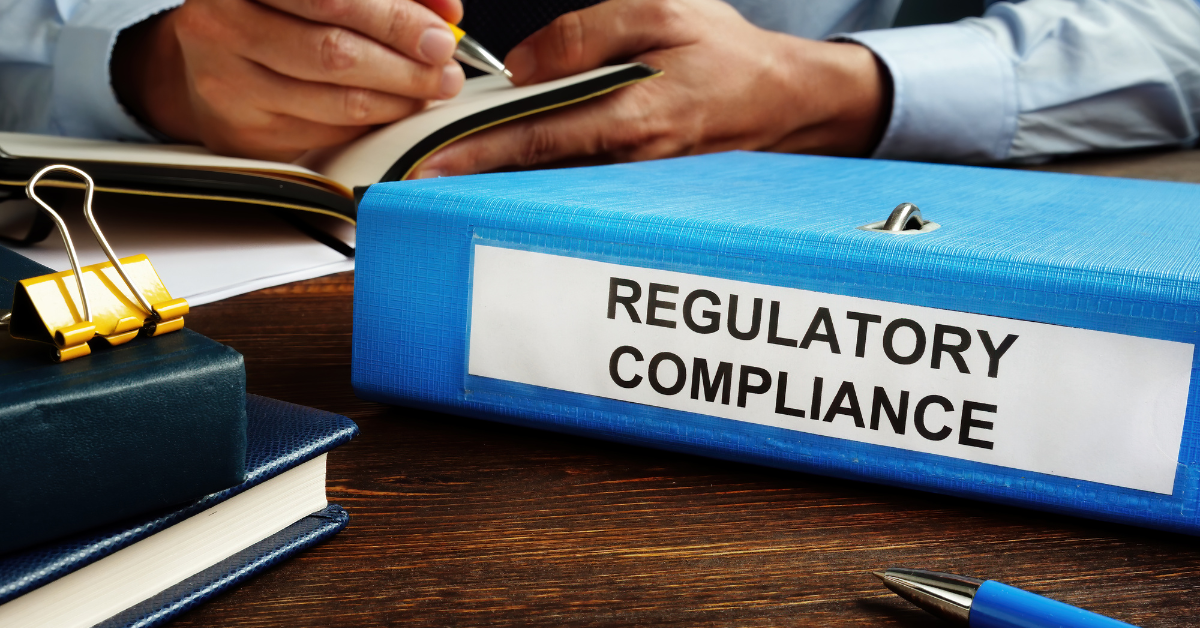Running a successful hotel goes beyond impeccable service and luxurious amenities. There’s an unseen, yet crucial aspect often overlooked: regulatory compliance.
A complex web of regulations governs hotels, covering everything from fire safety to guest data privacy. Non-compliance with these regulations can lead to hefty fines, damage your reputation, and even force closure.
This is where a Virtual Assistant (VA) can become your secret weapon for maintaining compliance and keeping your business safe.
The Importance of Regulatory Compliance

Hotels operate in a highly regulated environment. Local, state, and federal regulations dictate everything from how you store food to the accessibility features present in your guest rooms.
Staying compliant is crucial for several reasons:
- Guest Safety: Regulatory requirements ensure a safe environment for your guests. Fire safety protocols, proper food handling practices, and accessibility standards all contribute to a safe and enjoyable stay.
- Legal Protection: Compliance minimizes the risk of legal action and hefty fines associated with non-compliance.
- Reputation Management: Regulatory violations can damage your hotel’s reputation, deterring guests and jeopardizing positive reviews.
The Role of a VA in Hotel Compliance
With so many regulations to navigate, hotels can benefit greatly from the assistance of a VA. A VA can act as an extension of your team, taking on crucial tasks and keeping you on top of compliance requirements. They can:
- Research applicable regulations: Dive deep into the specific regulations your hotel needs to follow, utilizing government websites and industry association resources.
- Track updates and changes: Stay vigilant for updates and amendments to regulations, keeping the hotel informed of any necessary adjustments.
- Organize compliance documents: Gather and manage permits, licenses, safety manuals, and other documents related to compliance.
This initial information gathering and organization play a crucial role in laying the foundation for a proactive approach to compliance.
Navigating the Regulatory Maze: A Breakdown of Key Areas

Having established the importance of regulatory compliance and the role a VA can play, let’s delve deeper into the specific regulations hotels need to be aware of.
This complex landscape can be broadly categorized into:
- Health and Safety: These regulations focus on preventing the spread of illnesses and ensuring food safety. Examples include food handling protocols, sanitation guidelines, and proper ventilation standards.
- Fire Safety: Fire safety regulations are paramount to guest and staff safety. They dictate fire alarm testing procedures, sprinkler system maintenance, and fire escape route signage.
- Accessibility: The Americans with Disabilities Act (ADA) and similar regulations ensure hotels provide equal access and accommodations for guests with disabilities. This covers aspects like wheelchair-accessible rooms, braille signage, and elevator availability.
- Consumer Protection: Consumer protection regulations ensure fair business practices towards guests. This can include transparent pricing, advertising accuracy, and clear cancellation policies.
- Data Privacy: With the increasing importance of guest data, regulations like GDPR (General Data Protection Regulation) dictate how hotels collect, store, and use guest information.
Staying Ahead of the Curve
The regulatory landscape isn’t static. New regulations are introduced, and existing ones are amended periodically. For a VA, staying updated is crucial to ensure hotels remain compliant. Here are some valuable resources:
- Government Websites: Many government agencies, such as the Occupational Safety and Health Administration (OSHA) and the Federal Trade Commission (FTC), provide comprehensive information on regulations relevant to hotels.
- Industry Associations: Industry associations like the American Hotel & Lodging Association (AH&LA) offer resources, updates, and training programs on hotel regulations.
By utilizing these resources and maintaining a keen eye for changes, VAs can ensure hotels stay on top of their compliance obligations.
Transforming Compliance from Burden to Benefit with VAs

Now that we’ve explored the regulatory landscape hotels must navigate, let’s dive into the practical ways VAs can become superheroes of compliance.
Their skills can be categorized into three key areas:
Research and Information
- Regulation Research: VAs can act as research champions, delving into the specific regulations applicable to the hotel’s location and industry. Government websites and resources from industry associations are key tools in this process.
- Staying Updated: Regulations are subject to change. VAs can monitor for updates and amendments, keeping the hotel informed and allowing for proactive adjustments to maintain compliance.
- Document Organization: Compliance requires a comprehensive collection of documents like permits, licenses, safety manuals, and other relevant materials. VAs can gather and organize these documents, ensuring easy access for reference and inspections.
Task Management and Documentation
Compliance isn’t just about gathering information; it involves consistent action. VAs can excel in this area by:
- Creating Checklists and Schedules: Developing clear and comprehensive checklists and schedules for compliance tasks. Fire inspections, maintenance checks, and staff training sessions become streamlined with a VA’s organizational skills.
- Record Keeping Made Easy: Maintaining accurate and up-to-date compliance records is crucial. VAs can create and manage systems for recording training logs, incident reports, and other compliance-related documentation.
- Communication Bridge with Regulators: Regulatory agencies require communication for reports, inquiries, and clarifications. VAs can manage this communication, ensuring timely responses and fostering a positive relationship with regulatory bodies.
Training and Communication
Compliance isn’t just about paperwork; it’s about fostering a culture of safety and awareness. VAs can play a valuable role in:
- Employee Training Support: VAs can assist in developing and delivering training programs for staff on crucial regulations like food safety and fire safety procedures.
- Guest Communication Materials: Developing clear and informative materials for guests on safety protocols and relevant regulations is an area where VAs can contribute. This could include signage, guest manuals, or website information.
Common Challenges and How VAs Can Help

While regulations are essential for guest safety and business protection, navigating them can be a challenge. Here are some of the most common areas where hotels face compliance hurdles, along with how VAs can offer solutions:
Fire Safety
Ensuring fire safety requires regular inspections, proper maintenance of fire alarms and sprinkler systems, and well-marked escape routes. VAs can assist by:
- Scheduling and tracking fire inspections.
- Researching and maintaining up-to-date fire safety protocols.
- Creating training materials and conducting drills for staff on fire safety procedures.
Accessibility
Providing equal access for guests with disabilities is a crucial aspect of compliance. Challenges can arise in ensuring accessible room features, proper signage, and elevator availability. VAs can help by:
- Researching and understanding relevant accessibility standards (ADA guidelines).
- Reviewing guest room layouts and identifying areas for improvement.
- Creating and maintaining an accessibility inventory for the hotel.
Data Security and Guest Privacy
Data breaches and privacy concerns are an increasing worry. Regulations like GDPR dictate how hotels collect, store, and use guest information. VAs can be valuable assets by:
- Researching and understanding data privacy regulations.
- Implementing data security protocols like password management and encryption.
- Developing clear guest communication on data collection practices and privacy policies.
Food Safety and Sanitation
Maintaining proper hygiene standards and food handling protocols are crucial to prevent foodborne illnesses. VAs can support compliance by:
- Researching and understanding food safety regulations from agencies like the FDA.
- Assisting with developing and implementing sanitation protocols for kitchens and food storage areas.
- Creating training materials and conducting food safety training for staff.
Benefits of Using a VA for Hotel Compliance

Incorporating a VA into your hotel’s compliance strategy offers a multitude of advantages:
Improved Efficiency and Accuracy
VAs streamline compliance tasks, ensuring accuracy in record keeping, scheduling, and communication with regulatory bodies. This frees up valuable time for hotel staff to focus on core guest service duties.
Reduced Workload for Hotel Staff
Compliance can be a time-consuming endeavor. VAs alleviate this burden by handling research, documentation, and communication tasks, allowing staff to focus on delivering exceptional guest experiences.
Proactive Approach to Compliance
VAs can monitor for regulatory updates and proactively implement changes, minimizing non-compliance risk and associated penalties.
Cost-Effective Solution
Hiring a VA is a cost-effective alternative to hiring full-time compliance personnel. Hotels can access specialized skills and expertise without incurring significant overhead costs.
Conclusion
Navigating the ever-changing landscape of hotel regulations can be daunting. By partnering with a VA, hotels can ensure they meet all the requirements, foster a safe environment for guests, and maintain a positive reputation.
Don’t waste valuable time on compliance tasks. Reclaim your hours and focus on what matters most – your guests! Explore our VA solutions here at Office Admin Help and discover how we can free up your time.




